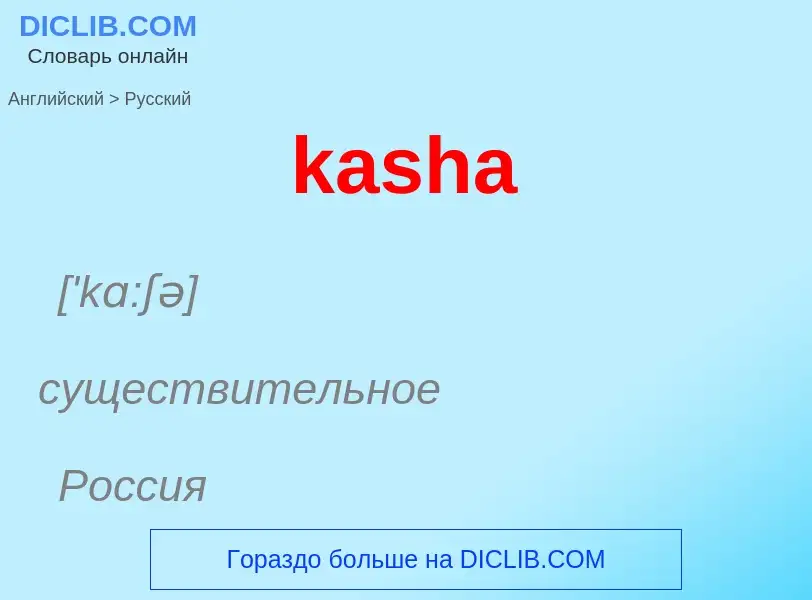Traducción y análisis de palabras por inteligencia artificial ChatGPT
En esta página puede obtener un análisis detallado de una palabra o frase, producido utilizando la mejor tecnología de inteligencia artificial hasta la fecha:
- cómo se usa la palabra
- frecuencia de uso
- se utiliza con más frecuencia en el habla oral o escrita
- opciones de traducción
- ejemplos de uso (varias frases con traducción)
- etimología
kasha - traducción al ruso
['kɑ:ʃə]
существительное
Россия
каша
особ. гречневая
крупа
Definición
Wikipedia

In English, kasha usually refers to the pseudocereal buckwheat or its culinary preparations. In various East-Central and Eastern European countries, kasha can apply to any kind of cooked grain. It can be baked but most often is boiled, either in water or milk, and therefore the term coincides with the English definition of 'porridge', but the word can also refer to the grain before preparation, which corresponds to the definition of 'groats'. This understanding of kasha concerns mainly Belarus (каша), the Czech Republic (kaše), Lithuania (košė), Poland (kasza), Romania and the Republic of Moldova (cașa), Russia (каша), Slovakia (kaša), Kazakhstan, and Ukraine (каша), where the term, besides buckwheat, can apply to wheat, barley, oats, millet and rye. Kashas have been an important element of Slavic diet for at least 1,000 years.
This English-language usage probably originated with Jewish immigrants, as did the form קאַשי kashi (literally translated as "porridges").



![[[Buckwheat]] [[grain]]s [[Buckwheat]] [[grain]]s](https://commons.wikimedia.org/wiki/Special:FilePath/Kashagrains.png?width=200)
.jpg?width=200)
